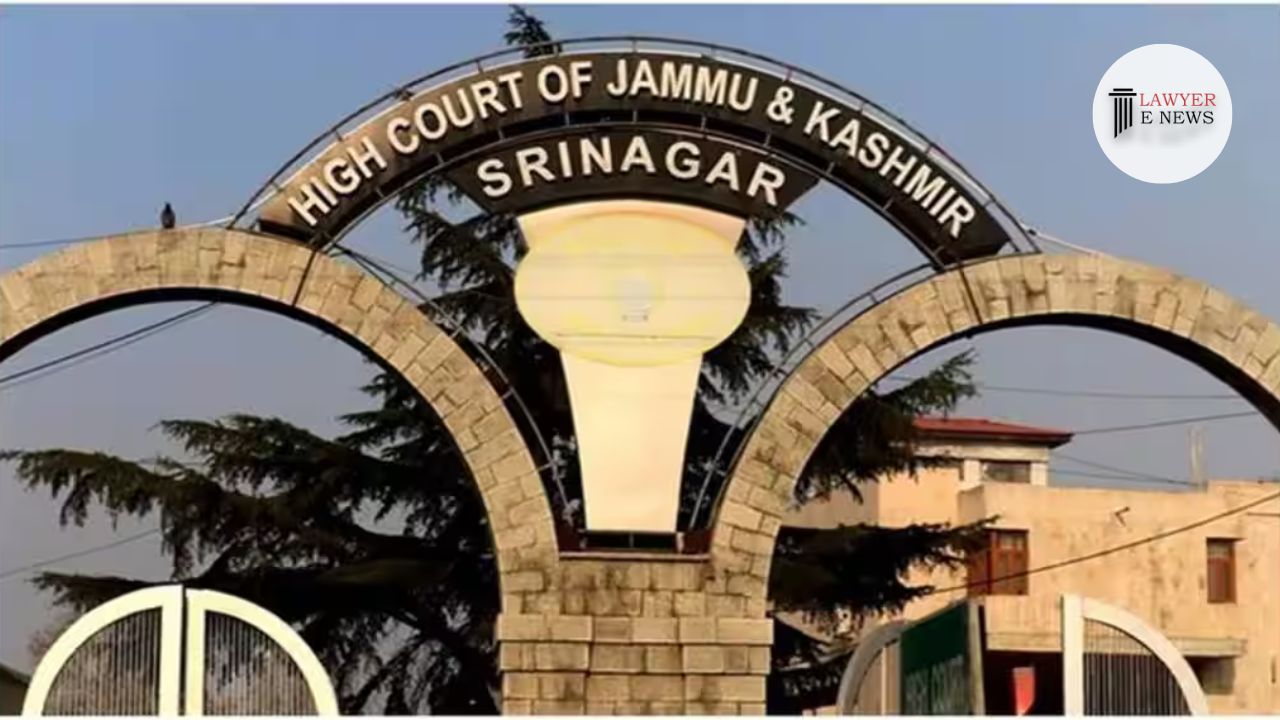-
by sayum
14 February 2026 2:22 PM



Chief Judicial Magistrate’s order directing FIR registration under Section 156(3) Cr.P.C. after recording complainant’s statement deemed impermissible.
The High Court of Jammu & Kashmir and Ladakh at Jammu has quashed an FIR and an order of the Chief Judicial Magistrate, Kishtwar, directing the registration of the FIR. The judgment, delivered on May 31, 2024, by Justice Rajnesh Oswal, underscores the legal position that a Magistrate cannot direct the registration of an FIR under Section 156(3) Cr.P.C. after taking cognizance of an offence by recording the complainant’s statement under Section 200 Cr.P.C.
The petitioner, Vinod Kumar, challenged the order dated June 10, 2023, issued by the Chief Judicial Magistrate, Kishtwar. The order directed the SHO of Police Station Dachhan to register an FIR under Sections 336 and 304-A of the IPC based on a complaint filed by Somi Devi. The complaint involved allegations of negligent actions leading to harm. Kumar sought to quash both the Magistrate’s order and the FIR, arguing that the order was procedurally flawed.
Justice Rajnesh Oswal emphasized that the direction for FIR registration under Section 156(3) Cr.P.C. is only permissible at the pre-cognizance stage. The court observed, “Once the Magistrate has recorded the statement of the complainant under Section 200 Cr.P.C., he has taken cognizance of the offence, and therefore, the direction to register an FIR under Section 156(3) Cr.P.C. is not permissible.”
The judgment highlighted the Supreme Court’s stance in the case of “M/S Sas Infratech Pvt. Ltd. Vs. The State of Telangana,” which clarified the stages at which FIR directions can be issued. The Supreme Court had stated, “When the Magistrate in exercise of his judicial discretion directs investigation under Section 156(3) of Cr. P.C., he cannot be said to have taken cognizance of any offence. It is only when the Magistrate after applying his mind prefers to follow the procedure under Chapter XV of Cr.P.C. by resorting to Sections 200, he can be said to have taken cognizance of the offence.”
Justice Rajnesh Oswal remarked, “The order dated June 10, 2023, passed by the Chief Judicial Magistrate, Kishtwar as well as FIR registered pursuant to the order impugned are not sustainable in the eyes of law.”
The High Court’s decision to quash the FIR and the Magistrate’s order underscores the importance of adhering to procedural requirements when directing the registration of FIRs. This judgment reaffirms the legal principle that post-cognizance directions for FIR registration under Section 156(3) Cr.P.C. are impermissible, thereby ensuring that the procedural safeguards are upheld in the judicial process.
Date of Decision: May 31, 2024
Vinod Kumar vs. Somi Devi
